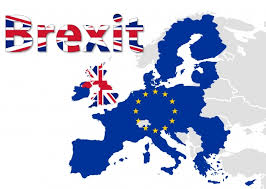18 February 2021
Now the Fury
Resentment in Europe.
By Robert Kilconner
The expression “Hell hath no fury like a woman scorned” is a shortened version of lines in William Congreve’s play “The Mourning Bride” and, since that play was written in 1697, it is no surprise that it needs updating. Nowadays it would be sexist to apply it just to women and, in addition to bringing in men, perhaps one should bring in groups of people too, including the populations of the countries of the EU. However, whatever tinkering one might do in that regard, the central point survives. Scorning and rejection are the harbingers of hate.
That of course is what lies behind many of the difficulties surrounding Britain’s exit from the EU. An agreement had to be reached for abolishing tariffs on goods – the German car industry saw to that – but, that agreement having been secured, the EU will in the short term make things as disagreeable as it possibly can.
That isn’t because its leaders are particularly into hate. I do not suppose for a moment that Ursula von der Leyen was other than entirely honest when she indicated that she looked forward to a friendly relationship; nor was Macron for that matter. Yes, there may have been moments of frustration with “la perfide Angleterre,” but his business is not the harbouring of old grudges but retaining his hold on power in France. If the French population expect Britain to be given a rough ride then a rough ride it will be and precisely the same political dynamic will be replicated across the union. The population of the EU states cannot but be miffed at the fact that we have rejected them and that attitude must inevitably shape the approach of their leaders. When you see then that they are set on giving us a worse deal on financial services than they give the US, do not think that they will be swayed by the fact that is unfair. It is part of a revenge game, as indeed is the dissing of our Covid vaccines.
Of course it will not last forever. There will come a moment when they need us against some common foe or for some common task and then things will turn, but for the moment they will do us no favours and in shaping our policies we would do well to recognise that.
One of the implications of this state of affairs is that there is no point hoping to win the EU over with softness and charm. They are going to be obdurate and difficult in the remaining negotiations and the answer to that is to be obdurate and difficult too. Second, we need to develop other links as soon as possible. There is already an application to join the Trans-Pacific Partnership and talk about a military block as well (perhaps those aircraft carriers will have a use, after all, even if only a diplomatic one). The creation of links to the East will no doubt further inflame the resentment in Europe where they hope to see us, confidence in ribbons, looking for crumbs from their table. It doesn’t matter though. If they are out to spike us, they will do that whatever we do and it would be folly to worry unduly about their views. We have made our bed and, at the risk of mixing metaphors, we must now see it through.
For those of us who voted “remain” it is tempting to point to the chaos and indeed the economic dislocation generally as in some way justifying our original position. Actually, it doesn’t. Few of those voting in the referendum were under any illusion but that leaving would be a painful business and the view of the winners was that the new role which Britain was taking was worth the pain. Time will tell whether that is the case but I suspect that when the history books are written the current dislocation will just be a footnote in a much bigger question of whether as a country we were right to embrace an independent future. In the short term, however, it is going to be an uncomfortable few years.


